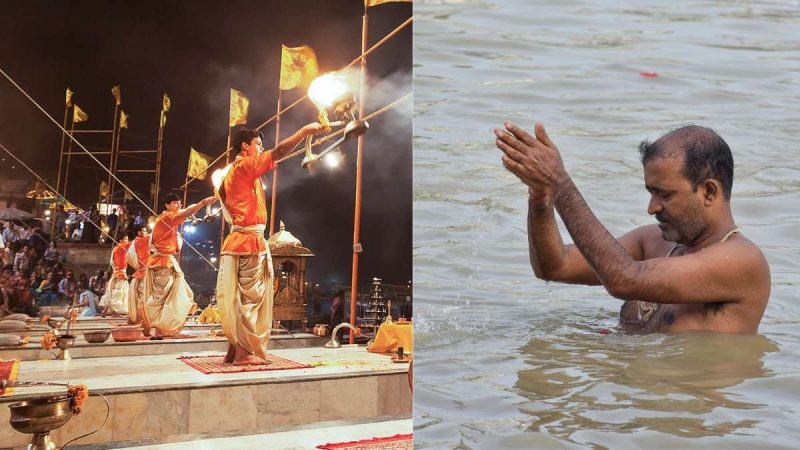What Is Margashirsha Amavasya
Margashirsha Amavasya is a holy new moon day observed during the Margashirsha month. This day is important for remembering ancestors. Devotees perform rituals like Pitru Tarpan, Tila Tarpan, and Pind Daan to show respect to departed family members. This day is also dedicated to Lord Vishnu, who is worshipped as the preserver of the universe. Many people believe that praying to Lord Vishnu on this day brings harmony, protection, and prosperity.
According to The Free Press Journal, this year, Margashirsha Amavasya will be celebrated on Wednesday, November 19. According to Drik Panchang, Margashirsha Krishna Amavasya will begin at 9:43 AM on November 19 and end at 12:16 PM on November 20.
Also Read: What Is Raulane Festival, The 5,000-YO Himachali Tradition That Involves Masks And Mountain Spirits?
Significance And Rituals
This sacred day is also known as Agahan Amavasya. It is not just a date on the calendar but a meaningful spiritual event for many households. People see it as a time to connect the physical and spiritual worlds. Taking a dip in holy rivers, especially the Ganga, is believed to cleanse the mind and body. Offering food or help to the needy strengthens the spirit of kindness and gratitude. These simple deeds are considered steps toward spiritual growth.
One of the main rituals performed on this day is the Tarpan. As per The Free Press Journal, in this ritual, devotees offer water mixed with sesame seeds, barley, and kusha grass to their ancestors. They stand near a river or a sacred water body while chanting mantras. The word “Tarpan” comes from the Sanskrit word “Trup,” which means to satisfy. Many people also visit the Ganga Ghat to offer arghya to the Sun God.
Worshipping Lord Vishnu and Goddess Lakshmi is another important part of the day. Those who cannot go to the temple can worship at home. They prepare an asan, place a yellow cloth, and set the idols of Lord Vishnu and Goddess Lakshmi. Offerings such as flowers, panchamrit, fruits, kheer, and dry fruits are made. Sacred texts like Vishnu Sahasranama or Vishnu Stotra are being recited. The ritual ends with an aarti seeking peace and prosperity.
How excited are you to celebrate this day? Tell us in the comments!
Also Read: From Rann Utsav To Hornbill: 12 Winter Festivals In India You Must Experience At Least Once
Cover Image Courtesy: Canva Pro/ Krishnendu Biswas & Canva Pro/ Andrey (Representative Images)

